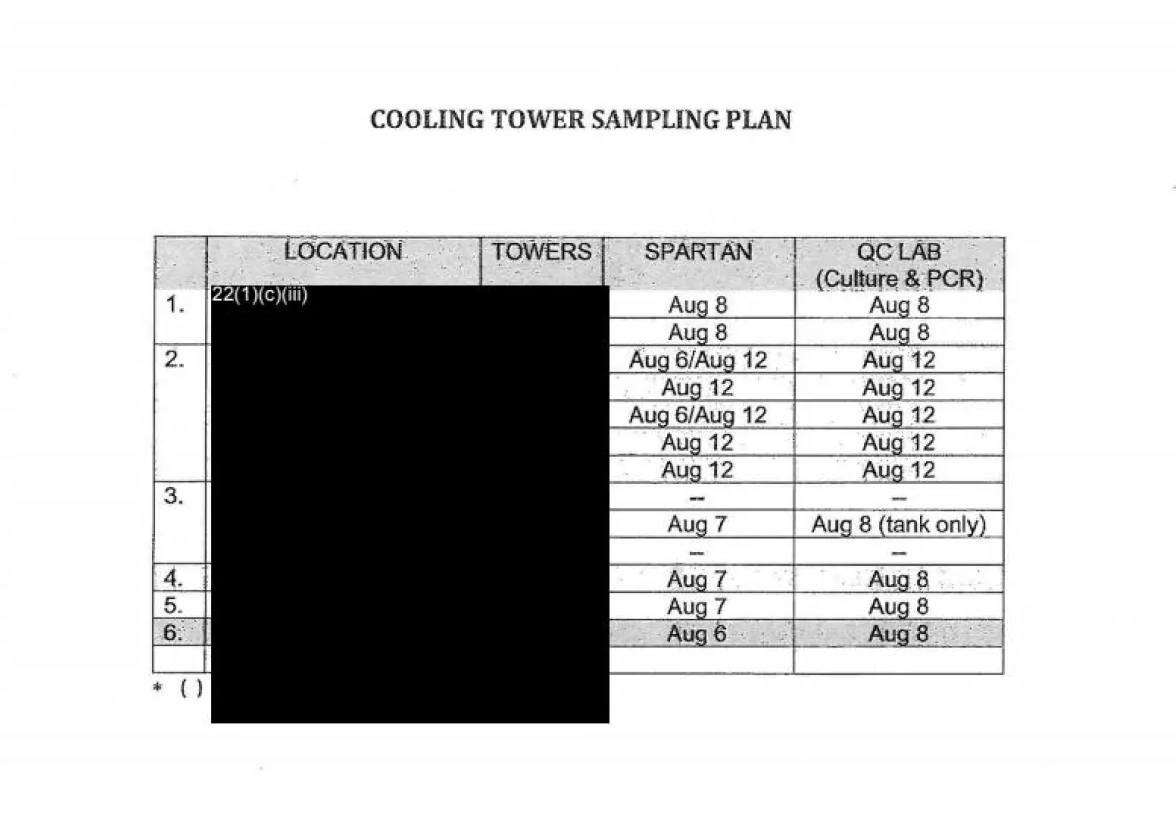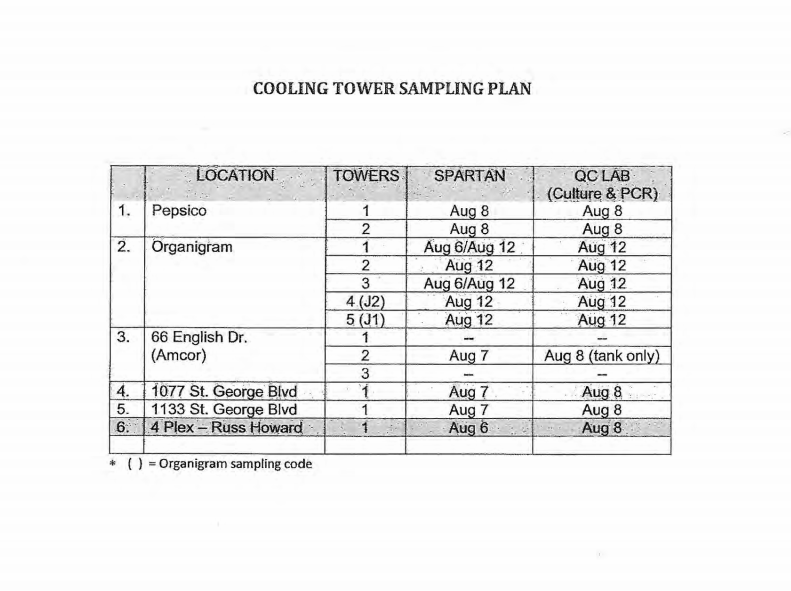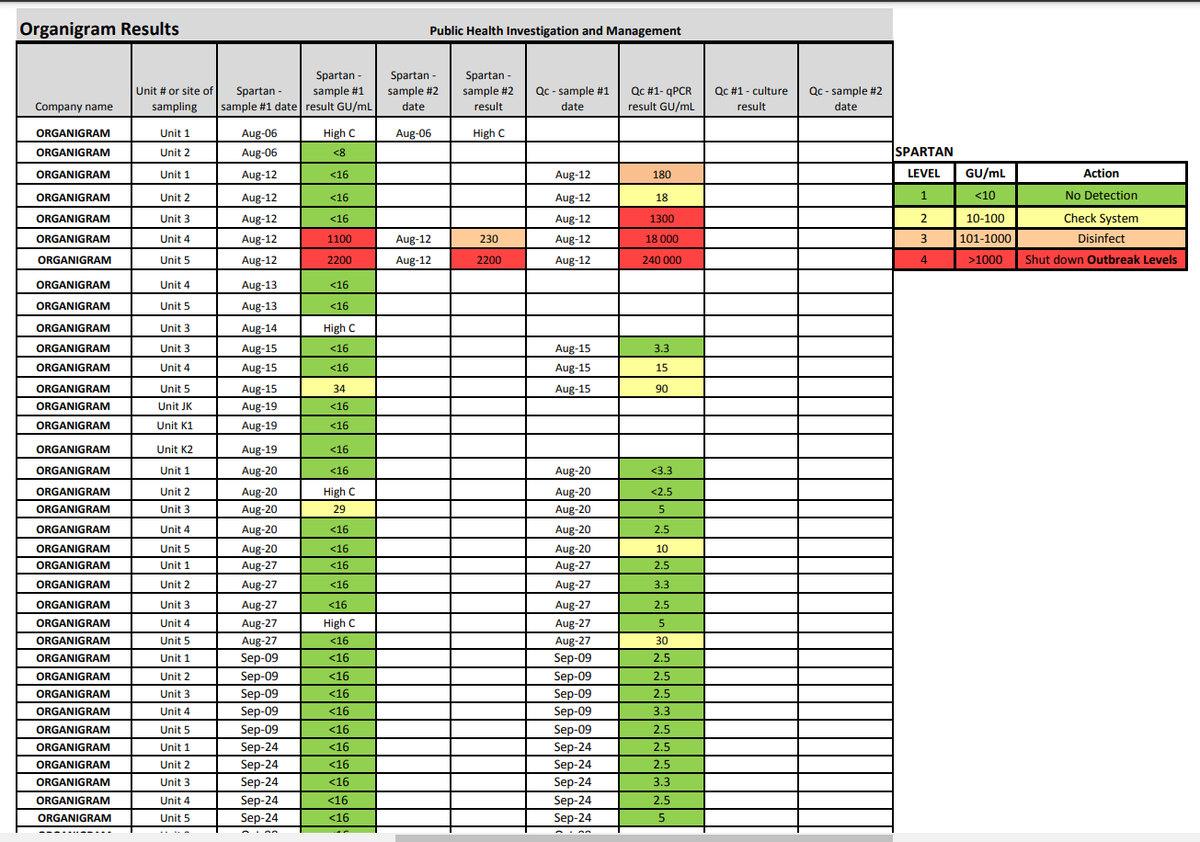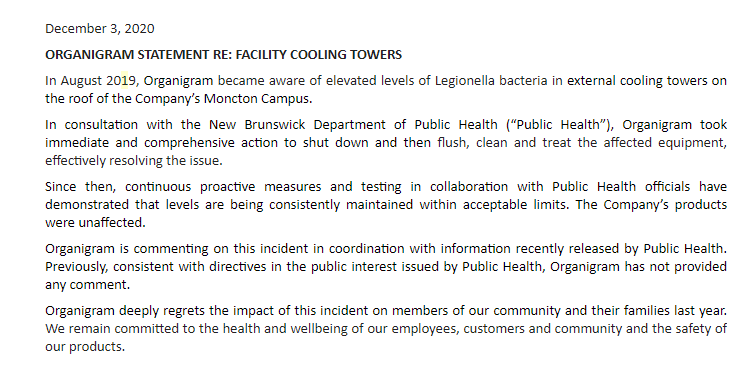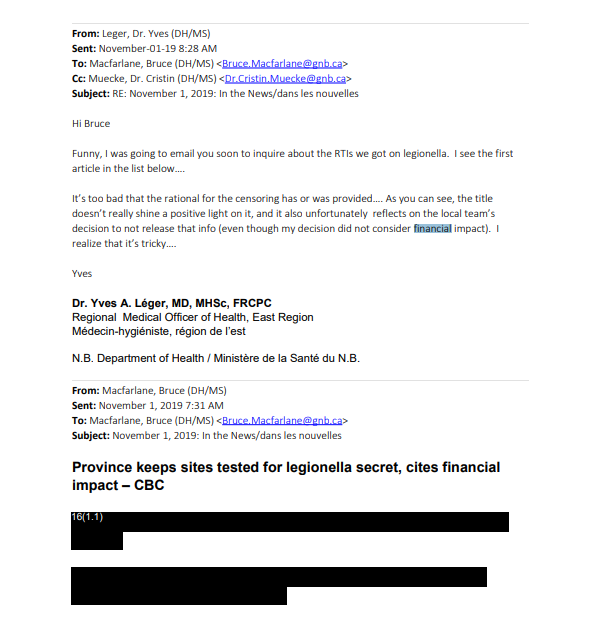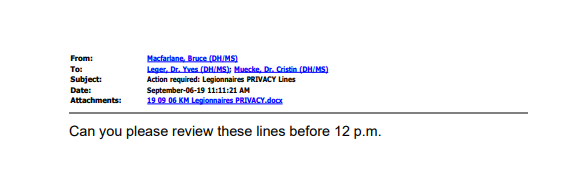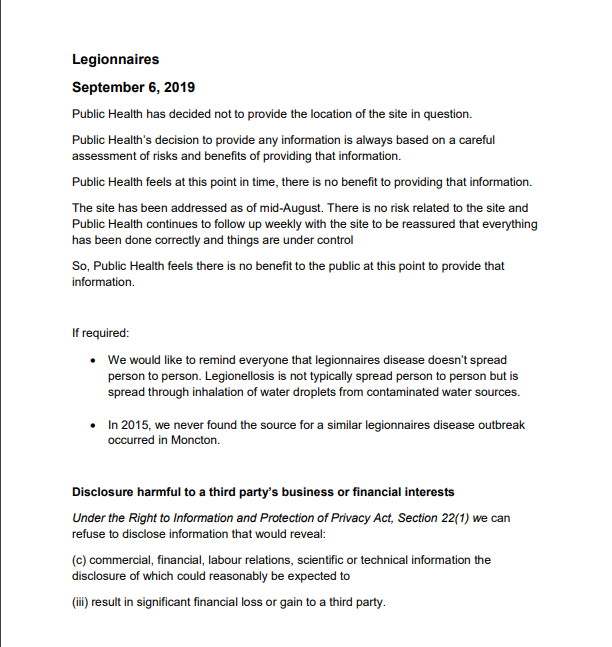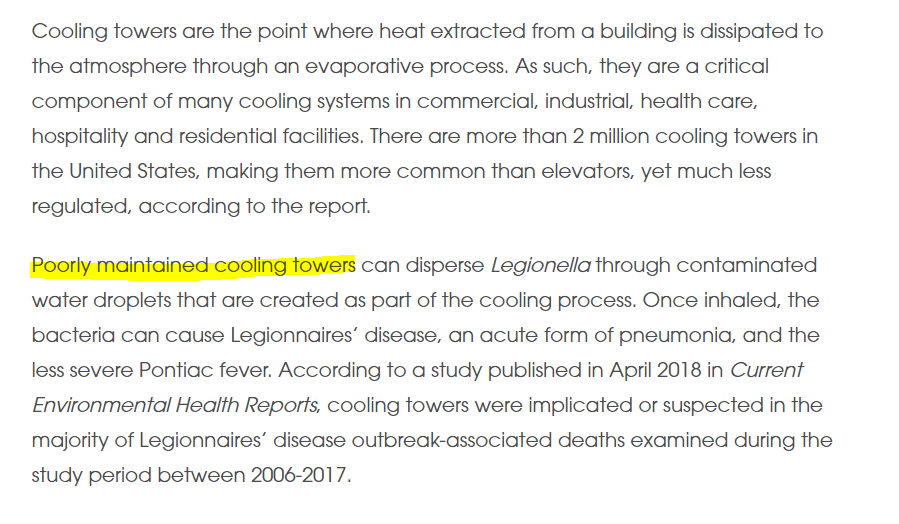My story this morning on an acknowledgement more than a year in the making: https://www.cbc.ca/news/canada/new-brunswick/legionnaires-disease-outbreak-organigram-1.5827097
A thread with some of the backstory.
Getting to this point was the result of filing I think around nine right to information requests at the municipal, provincial and federal levels last year.
#cdnfoi
Getting to this point was the result of filing I think around nine right to information requests at the municipal, provincial and federal levels last year.
#cdnfoi
The first response was to a request for a list of the sites tested. The province blacked the list out. I complained to the Ombud.
The Ombub in a ruling last month - originally due in the spring but delayed by the pandemic - said the province had incorrectly applied the right to information act to withhold the information. The whole decision is here: https://www.cbc.ca/news/canada/new-brunswick/moncton-legionnaires-outbreak-documents-ombud-1.5772397
This set up a choice for the province. It could agree with the Ombud ruling, giving the organizations on the list 15 biz days to go to court to block release of the info, or ignore the ruling since the Ombud can only recommend, not order. The province opted to agree.
That decision by the govt set up a choice for Organigram. Either allow the information to be released, or ask the Court of Queen's Bench to block the province from releasing the information, effectively revealing themselves anyway given court filings are public. I got the list:
After the Ombud ruling and in the tail end of the period when the company could potentially go to court, the province released the final batch of documents requested through a right to information request filed Dec. 31, 2019.
In that final batch of records, the province had decided to no longer black out Organigram's name. I don't know for sure, but this decision seems linked to the Ombud ruling.
See here for a list of testing results for Organigram's cooling towers.
See here for a list of testing results for Organigram's cooling towers.
As I prepared to report about this change in approach by the province, I asked Organigram for comment. Before they had refused to confirm or deny they were the source of the outbreak, despite the mounting evidence I have reported over the past 13 months.
Also... the section of the right to information act the province had used to withhold the information in the documents was that it could harm a third party's finances. My story about that last year apparently didn't go over well, recently released emails show.
However, Dr. Leger's talking points for one of the news conferences specifically point to this as a justification for withholding information about the outbreak.
My digging on this story really begin after talking to some of the 16 people who became sick and spent time in hospital. They felt they were owed answers about who made them sick. They now have those answers - but as Richard Melanson says in today's story - he wants an apology.
As the story also mentions, these kind of legionnaires' disease outbreaks are largely preventable. Here's a section of a news release from NSF, an organization I spoke to for the story.
Vancouver, Hamilton and the province of Quebec have implemented cooling tower registries. In New York City, you can click around on a map and find each cooling tower and its latest test results. NSF says such registries and maintence/testing rules could help avoid these outbreaks
New Brunswick has said such a registry will be recommended in a report on how this Moncton outbreak was handled. What's the status of that report? Unclear. Will the province act? It's unclear.
The province, after being given 24 hours to comment for my story, didn't respond.
The province, after being given 24 hours to comment for my story, didn't respond.
And a final note:
I'm not sure if we would have reached this point without the help of a whistleblower who provided the email Organigram sent its staff during the outbreak last year.
https://www.cbc.ca/news/canada/new-brunswick/organigram-cooling-tower-bacteria-legionnaires-outbreak-1.5304163
I'm not sure if we would have reached this point without the help of a whistleblower who provided the email Organigram sent its staff during the outbreak last year.
https://www.cbc.ca/news/canada/new-brunswick/organigram-cooling-tower-bacteria-legionnaires-outbreak-1.5304163
After reporting the story about that email, I heard from Organigram employees who said some workers don't have company email addresses. They never received the email and learned about it from my story.

 Read on Twitter
Read on Twitter